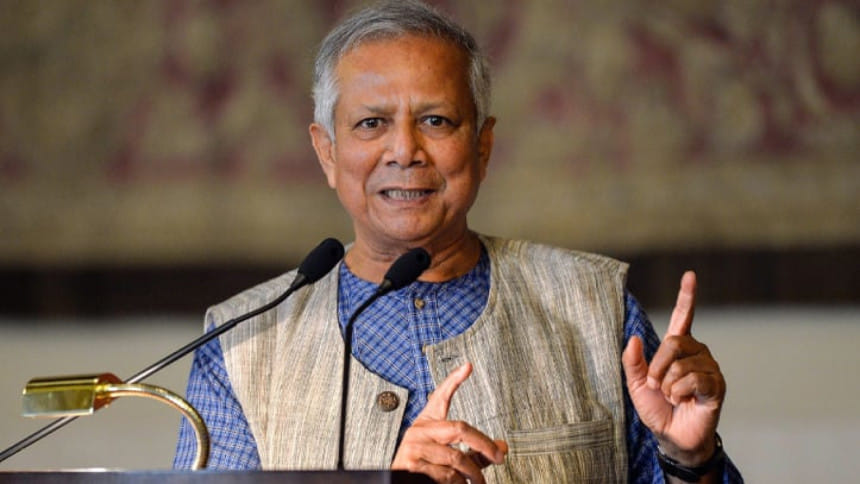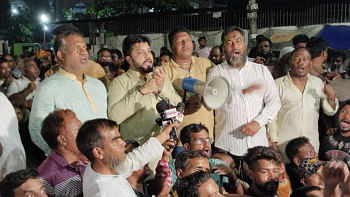Crime rate has not gone up

The crime rate in Bangladesh has not increased after the interim government took charge on August 8 last year, said Chief Adviser Prof Muhammad Yunus.
In an interview with BBC Bangla that was published yesterday, he questioned the basis of claims that the crime rate has soared.
"What is your reference point for saying crime has increased? You need to clarify that. Crime rates have not increased at all -- they remain the same as before."
Police reports, meantime, indicate a 50 percent rise in robbery cases over the past six months.
Yunus, however, acknowledged that the police force initially struggled to function due to fear but is gradually regaining its ability to enforce law and order.
When he took charge, Yunus said, he found the country in ruins, with institutions in disarray.
"My first effort was to unearth the real picture from beneath the rubble and make people's daily lives easier. That was my initial focus. Then gradually, I started thinking about the future -- where we should be heading."
His priority was institutional reforms to prevent a repeat of past "fascist" rule, corruption and electoral malpractices.
"From the ruins where we started, a new shape is emerging. We have made the economy more accessible and we have gained trust both domestically and internationally. No one can question whether we have failed to earn the trust of any country."
About his government's plan for institutional reforms, he said a "July Charter" would compile agreed-upon points between political parties regarding necessary changes.
"The political parties only need to specify their positions. Based on that, we will determine which recommendations have consensus. Those will be compiled into a separate document highlighting the agreed-upon points."
He reiterated that elections would take place within the year, as previously announced.
Yunus dismissed claims that the neutrality of the interim government was in question.
Asked about BNP acting chairman Tarique Rahman's claim that doubts had emerged among the public regarding the government's neutrality, Yunus said: "Among the public, or is it just him who has doubts?"
He also denied any state involvement in the newly formed political platforms.
The interim government continues to enjoy full cooperation from the military, he said.
Asked about the army chief's statement suggesting that Bangladesh's independence and sovereignty could be at risk if all sectors did not work together, Yunus acknowledged that threats to stability persisted.
The threat was coming from the Awami League, he said.
"They are making every effort to unsettle the situation. This threat is constant -- it is present at all times and in all places. They are issuing addresses, calling on people to rise up and take action, giving various directives like calling for strikes and so on. How do you think people will react to that? Do you think all of this will just pass peacefully?"
However, the AL's political future would be decided by consensus, he said, adding that those who had committed crimes must be held accountable.
The country's relationship with India is "very good" and has not deteriorated following the ouster of the India-aligned AL government.
"There is no alternative to good relations between Bangladesh and India. Our relationship is close, our mutual dependence is significant, and historically, politically and economically, we are so close that we cannot diverge from this path."
Any tensions were due to misinformation and were being addressed.

 For all latest news, follow The Daily Star's Google News channel.
For all latest news, follow The Daily Star's Google News channel. 





Comments